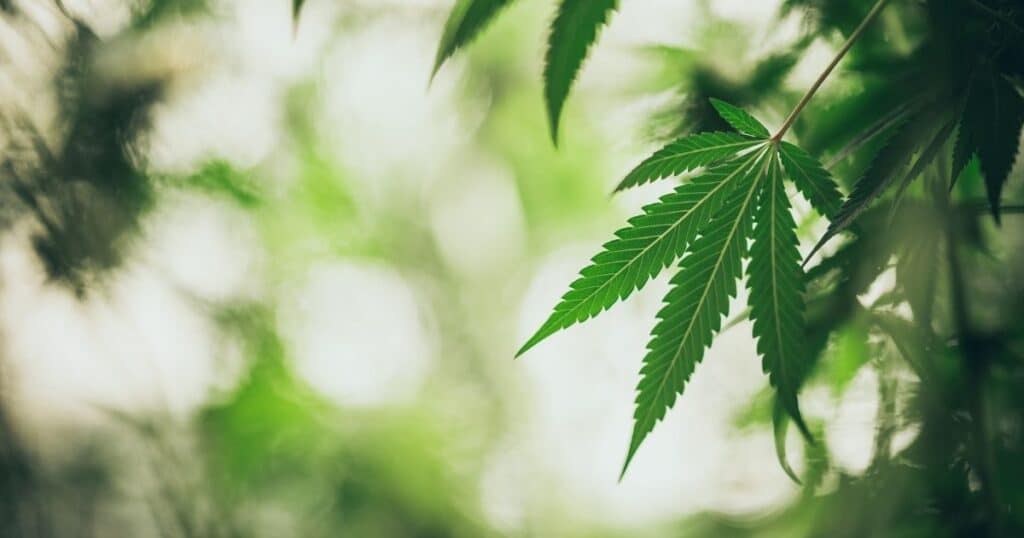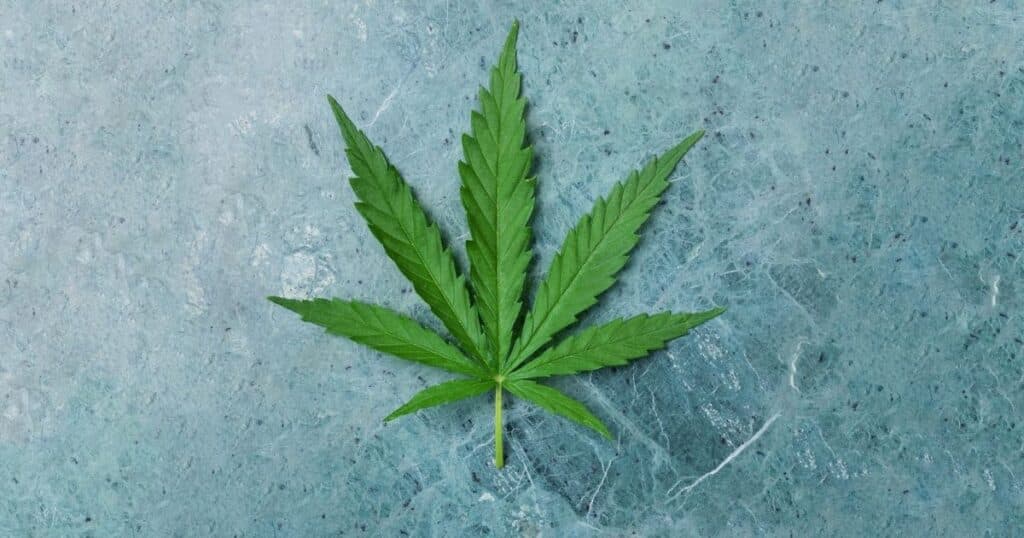The cannabis industry has faced numerous challenges and obstacles in its path towards normalization and legalization. One of the latest developments is a letter sent to Attorney General Merrick Garland and current DEA Administrator Anne Milgram by former DEA and White House officials, expressing their strong opposition to the Department of Health and Human Services (HHS) recommendation to the DEA for marijuana rescheduling as a Schedule III drug under the Controlled Substances Act (CSA).
This recent response from former officials highlights the ongoing divide between those still clinging to outdated views on marijuana and those pushing for its acceptance and normalization in our society. The tone of the letter echoes a sentiment of fear-mongering and opposition to the progress being made by the cannabis industry.
HHS Recommendation
The news of HHS’s recommendation for marijuana rescheduling to Schedule III under the Controlled Substances Act (CSA) has caused a stir in the cannabis industry. This follows President Biden’s request last year for HHS and the Attorney General to review how marijuana is classified under federal law. After less than 11 months, HHS has completed its scientific evaluation and shared its recommendation with the DEA.
This recommendation holds significant weight as it could potentially open up more opportunities for research, banking, and tax benefits for cannabis businesses. Currently, marijuana is classified as a Schedule I substance, alongside drugs like heroin and LSD. This classification has hindered the growth of the cannabis industry and created numerous challenges for those in the business.
I can now share that, following the data and science, @HHSGov has responded to @POTUS’ directive to me for the Department to provide a scheduling recommendation for marijuana to the DEA.
— Secretary Xavier Becerra (@SecBecerra) August 30, 2023
We’ve worked to ensure that a scientific evaluation be completed and shared expeditiously. pic.twitter.com/p84x8p07sP
With HHS’ recommendation, there is hope for a potential shift in the perception of marijuana and its acceptance in our society. It is a step towards acknowledging the medicinal benefits of cannabis and recognizing its potential for economic growth.
It is important to note that while HHS’ recommendation may still face challenges in gaining approval from the DEA, it marks progress towards addressing outdated views on marijuana and pushing for change. As more states continue to legalize marijuana for medicinal and recreational use, it becomes increasingly essential for federal laws to catch up with the changing landscape.
Opposition from Former DEA Administrators and Office of National Drug Control Policy Directors
While HHS’ recommendation for marijuana rescheduling may bring hope to those in the cannabis industry, it has also been met with opposition from former DEA administrators and White House Office of National Drug Control Policy directors. Their stance highlights the ongoing divide between those who advocate for the acceptance and normalization of marijuana and those who still hold on to outdated views.
In a letter posted by SAM (an organization that states on their site “We envision a society where marijuana policies are aligned with the scientific understanding of marijuana’s harms, and the commercialization and normalization of marijuana are no more.”) sent to Attorney General Merrick Garland and DEA Administrator Anne Milgram, these officials voiced that they were “gravely concerned” about the potential rescheduling of marijuana to Schedule III. They argue that marijuana should remain a Schedule I drug due to its high potential for abuse and lack of accepted medical use.
“Schedule I drugs are those with no accepted medical use. The FDA has not approved marijuana for medical use because no double-blind, published studies show safety and efficacy for raw marijuana; thus, it must remain a Schedule I drug.” says the letter.
Their stance on the lack of accepted medical use is particularly interesting given that the FDA has approved one CBD-based medication, Epidiolex, for treating seizures in children. This approval further emphasizes the need for more research and understanding of the potential medical benefits of marijuana.
Despite this FDA-approved medication and growing evidence of marijuana’s medicinal properties, these former officials cling to the idea that it should remain a Schedule I drug. It is clear that their opposition stems from fear-mongering tactics and a desire to hold onto the status quo rather than considering the potential benefits and progress that rescheduling could bring.
“Cannabis Addiction and Potency”
One of the common arguments used by marijuana prohibitionists is that the drug is more potent now than it was decades ago, which inhibits addiction.
“Marijuana potency has also increased since Scheduling was last reviewed. The average THC potency of marijuana seized by the DEA has spiked from 3.96% in 1995 to 15.34% in 2021. In 2016, the average THC potency was at 11.51%. Many concentrates sold in state “legal” markets today are upwards of 99% THC. Research has demonstrated that “use of high potency cannabis, compared to low potency cannabis, was linked to a four-fold increased risk of addiction.”
This claim aims to instill fear and perpetuate the idea that marijuana is becoming increasingly dangerous. However, this argument fails to acknowledge the advancements in cultivation techniques, which have led to higher potency levels.
The truth is that marijuana has not inherently changed over time; it is simply being grown differently. Just as agriculture methods have evolved to produce higher quality and yield of crops, so has cannabis cultivation. This has resulted in higher potency levels, but it does not mean that marijuana is inherently more dangerous.
In fact, the development of new cultivation techniques has allowed for a wider variety of strains with varying levels of THC and CBD. This provides consumers with more options and control over their cannabis experience rather than being limited to one standard level of potency.
“Thriving Illicit Market”
Despite the growing number of states legalizing marijuana for medicinal and recreational use, there is still a thriving illicit market. One argument made in the letter to Attorney General Merrick Garland and DEA Administrator Anne Milgram is that even with legalization, the illegal marijuana market remains strong.
One factor contributing to this phenomenon is the high taxes and regulations placed on legal cannabis companies. These companies have to jump through numerous hoops to remain compliant and face hefty taxes that drive up the cost of their products. As a result, illicit marijuana can be sold at a much lower price point.
This stark difference in cost between legal and illicit marijuana makes it difficult for legal companies to compete and attract customers away from the illicit market. Consumers, especially those who have been purchasing marijuana illegally for years, may not see the value in paying more for a legal product when they can easily obtain it from an illicit source.
Furthermore, the high taxes and regulations also create barriers to entry for small businesses and individuals looking to enter the legal cannabis market, the industry is dominated by larger companies who have the resources to navigate these obstacles, further limiting competition and driving up prices.
Concerns Over 280E and Targeting Youth
In the letter to Attorney General Merrick Garland and DEA Administrator Anne Milgram, one of the points raised is that rescheduling marijuana to a Schedule III drug would allow cannabis companies to use tax deductions, specifically under Section 280E. This argument suggests that legal cannabis businesses would be able to deduct expenses for advertisements appealing to youth and the sale of kid-friendly marijuana products.
“Moving marijuana to Schedule III would supersize the cannabis industry in the United States by allowing them to evade IRS Section 280E and deduct business expenses. Not only would this mean that marijuana corporations would be able to deduct expenses for advertisements appealing to youth and the sale of kid-friendly marijuana gummies, but it would also dramatically increase the industry’s commercialization ability.”
However, this argument fails to recognize the strict regulations and checks and balances already in place for legal cannabis businesses to ensure they are not selling to minors. Additionally, it ignores the fact that legal cannabis companies are already heavily taxed at both the state and federal levels.
These high tax rates create an unequal playing field for legal cannabis businesses, making it difficult for them to compete with other industries that are able to deduct business expenses like advertising and marketing. This further perpetuates the stigma surrounding marijuana and hinders its acceptance as a legitimate industry.
Furthermore, legal cannabis businesses contribute billions of dollars in tax revenue each year to state coffers, yet they are still treated differently regarding tax deductions. Why should they not be allowed to utilize Section 280E like any other business? This unequal treatment only serves to reinforce the idea that cannabis is still seen as a “vice” and not a legitimate industry.

Overall, the letter sent to Attorney General Merrick Garland and DEA Administrator Anne Milgram opposing the recommendation from HHS to reschedule marijuana as a Schedule III drug is simply another example of reefer madness and fear-mongering from politicians who are losing their grip on stifling cannabis industry growth.
The fact is that the legal cannabis industry has a lot to offer, including natural plant medicine for people, job creation, and economic growth. Legal cannabis businesses contribute billions of dollars in tax revenue yearly to state coffers nationwide. Yet, they are unable to utilize the same tax deductions as other industries due to the high taxes and regulations placed on them.
It is time for a shift in perspective towards cannabis and to recognize it as a legitimate industry with many benefits for individuals and society. The recommendation to reschedule marijuana as a Schedule III drug should not be ignored or discredited based on outdated beliefs and prohibitionist talking points. Instead, we should embrace the growth and normalization of cannabis in today’s society, acknowledging its positive contributions to our communities and economy.
Enjoyed that first hit? Come chill with us every week at the Friday Sesh for a freshly packed bowl of the week’s best cannabis news!

















